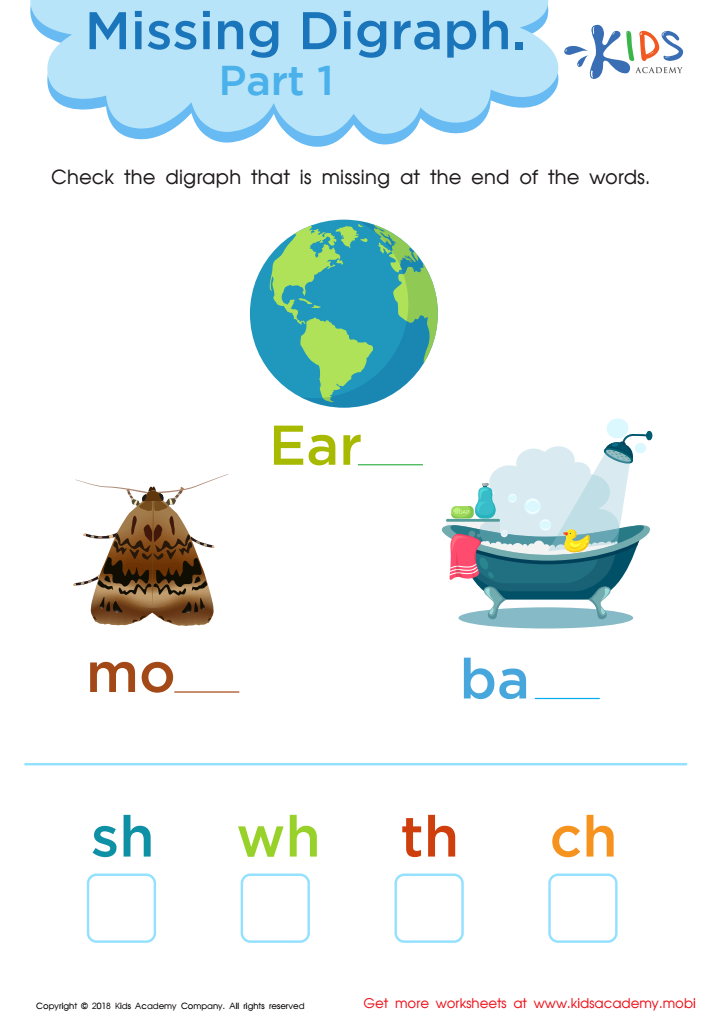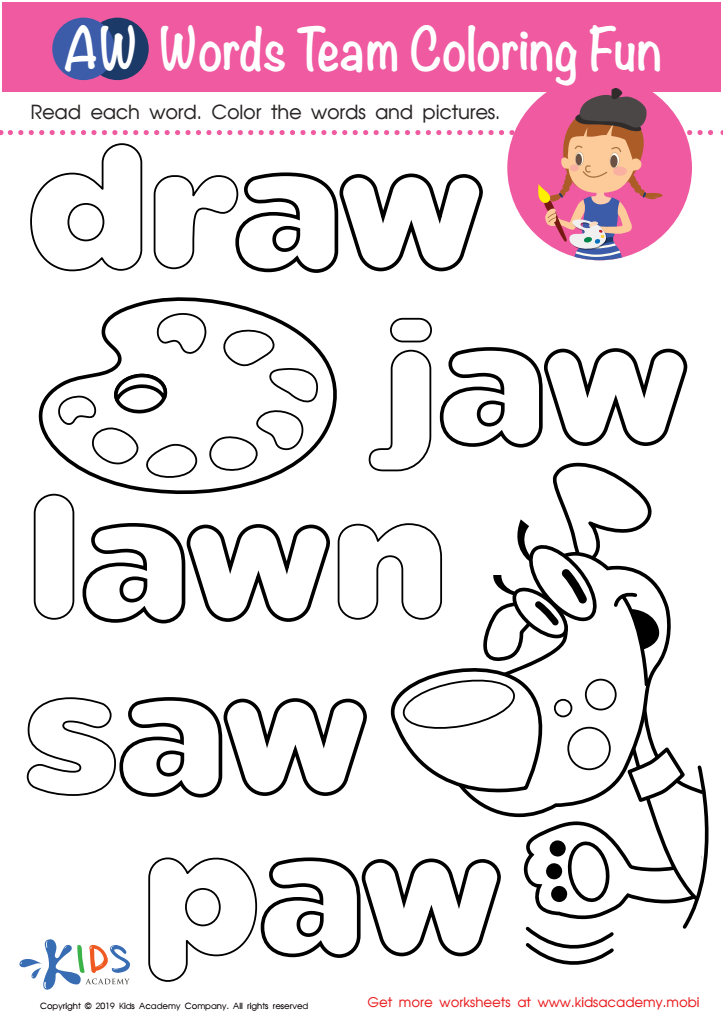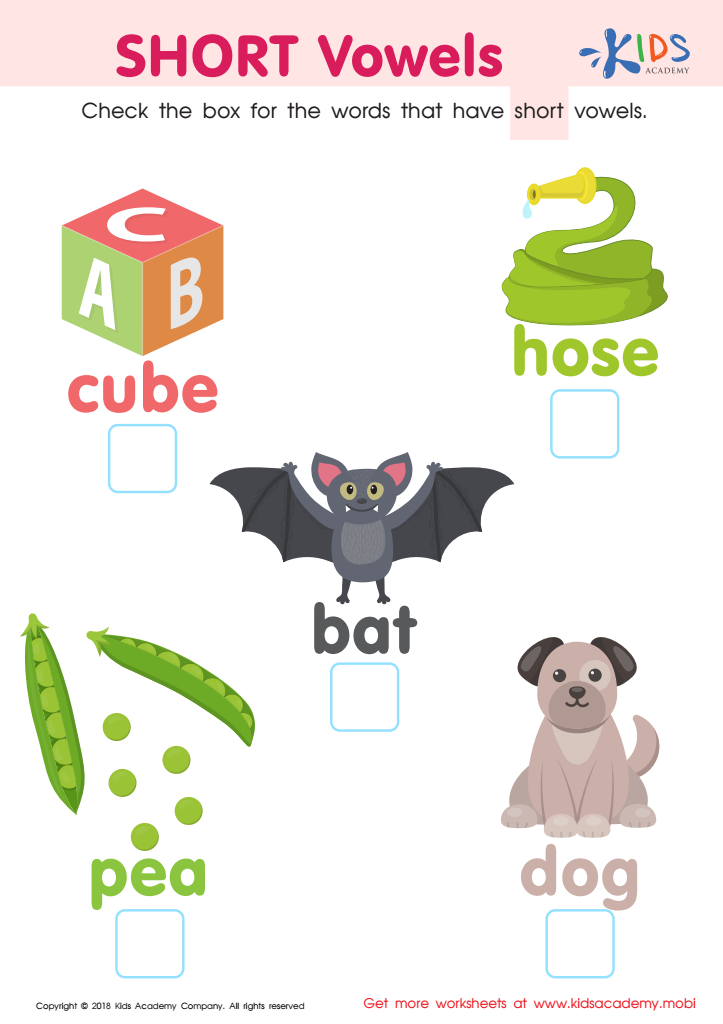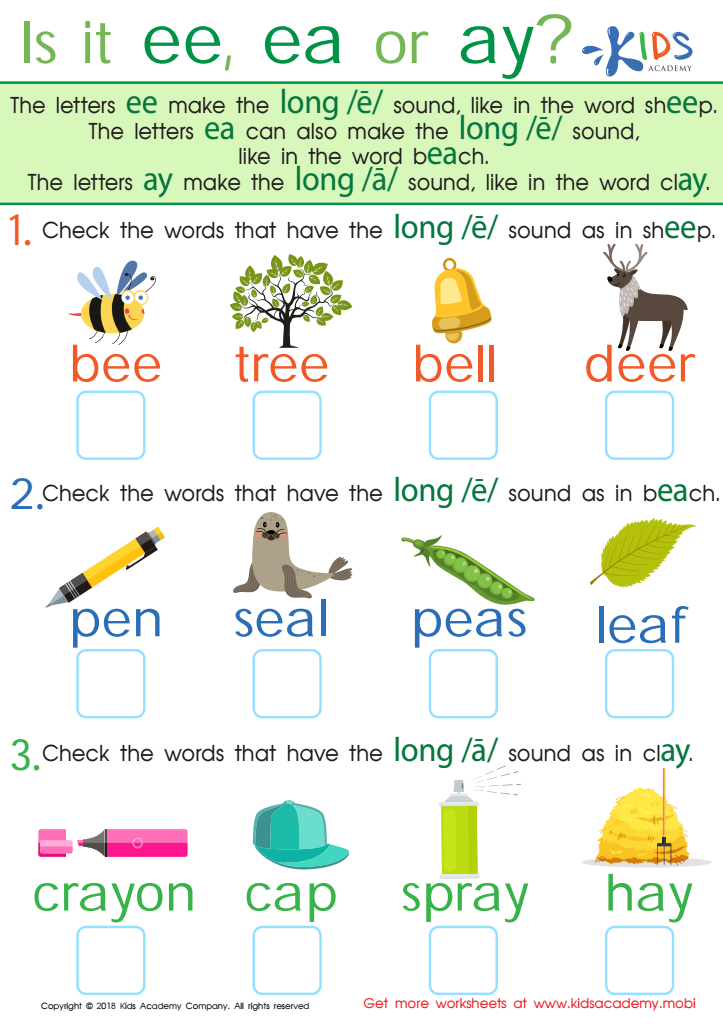Spelling Skills Normal Phonics Worksheets for Ages 4-6
5 filtered results
-
From - To
Discover our engaging Spelling Skills Normal Phonics Worksheets designed for children aged 4-6! These worksheets are a fantastic resource for early learners, helping to reinforce phonics and spelling fundamentals. With fun and interactive activities, kids will improve their sound recognition, word formation, and spelling accuracy. Each worksheet is carefully crafted to develop critical literacy skills in a playful manner, ensuring that learning is both enjoyable and effective. Perfect for home or classroom use, our printable phonics worksheets will guide young learners as they embark on their journey to becoming confident spellers and readers. Start exploring today!


Missing Digraph: Part 1 Worksheet


AW Words Team Coloring Fun Worksheet


short vowels Worksheet


Is It EE, EA, or AY? Worksheet


Words with sound f Reading Worksheet
Parents and teachers should prioritize Spelling Skills Normal Phonics for ages 4-6 because it lays the foundation for effective reading and writing. During this critical developmental stage, children are beginning to understand the connection between sounds and letters, which is crucial for phonemic awareness. Phonics helps young learners decode words, enabling them to read independently and with confidence.
By emphasizing phonics instruction, educators can enhance children's ability to recognize patterns in language, making spelling more intuitive. This early mastery of phonics not only boosts literacy skills but also fosters a love for reading, which opens up a world of knowledge and creativity. Furthermore, strong spelling skills are linked to improved vocabulary and overall academic performance.
Supporting phonics learning cultivates essential skills such as critical thinking and problem-solving. Parents and teachers can reinforce these skills at home and in the classroom through engaging activities, games, and storytelling, creating a rich, supportive environment for learning.
Ultimately, investing in Spelling Skills Normal Phonics at this age equips children with the tools needed for academic success and lifelong literacy, promoting a brighter future in both education and personal development. Early intervention and support are fundamental in nurturing confident, capable readers and writers.

 Assign to My Students
Assign to My Students















